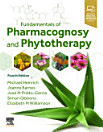Pharmacology of Endogenous Neurotoxins: A Handbook
Andreas Moser
Dec 2012 · Springer Science & Business Media
Ebook
273
Pages
reportRatings and reviews aren’t verified Learn More
About this ebook
It is a great pleasure to write the foreword to this important volume for several reasons. First: As far as we know, already primitive societies had to cope with environmental toxins of many kinds and set up regulations to limit their effects on food and drug use. Modem science, synthesizing tens of millions of new compounds has incredibly magnified this challenge. Today, xenobiotic metabolism has become a crucial task for humans and many other species alike. Second: When reading this book, one is impressed by the extraordinary speed at which neurotoxicology has advanced. Obviously, processing (and endogenous formation) oftox ins has become an extremely relevant topic. When I had the chance, almost three decades ago, to work in chemical pharmacology with Bernard B. Brodie at NIH, the drug metabo lizing system of the liver had just been recognized and characterized. We had just started to work on the biogenic amines, newly discovered cyclic nucleotides in rat brain, human cere brospinal fluid, and on the effects of toxic drugs like amphetamines. Today, biochemical neuropharmacology is a mature field of neuroscience.
Rate this ebook
Tell us what you think.
Reading information
Smartphones and tablets
Install the Google Play Books app for Android and iPad/iPhone. It syncs automatically with your account and allows you to read online or offline wherever you are.
Laptops and computers
You can listen to audiobooks purchased on Google Play using your computer's web browser.
eReaders and other devices
To read on e-ink devices like Kobo eReaders, you'll need to download a file and transfer it to your device. Follow the detailed Help Center instructions to transfer the files to supported eReaders.






